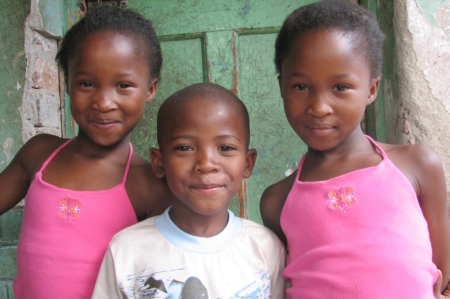
The grandmothers of the small Canadian town of Wakefield have started a social movement – the Wakefield Grannies – which has spread across Canada and halfway around the world to Africa.
It began on a summer night in 2004, when a South African nurse visiting Wakefield gave a talk at the local church hall. Sister Rose Letwaba spoke softly as she told the story of grandmothers in the South African township of Alexandra, who had lost their adult children to AIDS and were left to care for their HIV-positive grandchildren. Many of the Canadian women were so shocked by what they heard that they decided to help, including Norma Geggie.
“It was almost like spontaneous combustion,” said Mrs Geggie, an expat Australian. “Suddenly, 10 women appeared.”
Ten Wakefield grandmothers paired up with 10 South African grandmothers. The idea was to write letters, raise money and give support. Mrs Geggie and the other Canadian women wanted their South African counterparts to know that someone cared.
“We hear about these tragic lives but we can’t really understand the pain that they must suffer, because there is nothing comparable here,” Mrs Geggie said.
The movement began during the worst of the AIDS epidemic, when fear and stigma ran deep in the townships of Johannesburg. Lucia Mazibuko did not even know what AIDS was before her daughters got sick. Everyone just said it was flu. But soon both daughters were dead and the older woman was left to care for her two HIV-positive grandsons, Bobo and Bongani.
“There was a big stigma by that time,” Mrs Mazibuko said.
“Everybody laughed at the person who was sick. Everybody laughed and said it was a sin.”
The South African government failed to provide life-saving anti-retroviral medication, despite the thousands of people who were infected. President Thabo Mbeki was an AIDS denialist. He questioned whether HIV was even linked to AIDS. While he debated the science, an estimated 330,000 South Africans died needlessly because they could not get access to the medication they needed. Lucia Mazibuko’s grandson Bongani died just as the drugs were finally rolled out. He was only 10 years old. His younger brother, Bobo, survived.
“I’m still having one and I just say ‘God, maybe it was your will’. It was a test,” Mrs Mazibuko said. She stood at Bongani’s graveside, holding Bobo’s hand.
“I said, ‘Bobo, you’re not going to die’. Don’t think you are going to be like Bongani. Bongani was sick and you are not going to die’. That’s what I told him when I was holding his hand.”
As the AIDS epidemic tore through the townships, South Africa’s grandmothers cared for thousands of orphans. They stepped up as the government debated and dithered. Without them, many of the orphans would have had no-one. The grannies were thrown back into mothering, a second time, with little support. These women had already lived through apartheid, township violence, and unrest, only to be faced with the awful toll of the AIDS epidemic. It is for this reason the Canadian grandmothers have been so valuable. The women in South Africa know they are not alone. And there is great joy in receiving mail from the grandmothers in Canada.
“When you get a letter from Canada, hey, you are just like a big boss,” Mrs Mazibuko said.
“Yeah, you have got a letter from overseas and you just call your kids and say, ‘Hey, I’ve got a letter’.”
From small beginnings, the movement has started a revolution. One of Canada’s most famous diplomats, Stephen Lewis, heard about the efforts of the Wakefield Grannies. Mr Lewis, the former UN Special Envoy for AIDS in Africa, threw his name and resources behind the campaign.
In 2006, the Stephen Lewis Foundation hosted a conference of hundreds of African and Canadian grandmothers in Toronto. It was a warm and rousing gathering. The women marched through the streets of Toronto shouting: “Grandmothers united, will never be defeated.” Now, there are almost 250 grandmother groups across Canada. The women and their communities have raised millions of dollars for AIDS grannies in Africa.
It has been a rewarding experience for those who have been involved, including the 89-year-old Mrs Geggie.
“Yes, it’s quite remarkable,” she said. “It’s done marvellous things for them, but also for us. I think that we’ve learnt a lot.”








